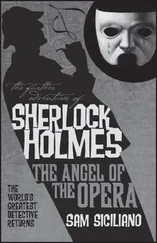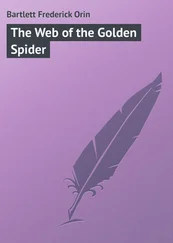Ahern, Jerry - The Web
Здесь есть возможность читать онлайн «Ahern, Jerry - The Web» весь текст электронной книги совершенно бесплатно (целиком полную версию без сокращений). В некоторых случаях можно слушать аудио, скачать через торрент в формате fb2 и присутствует краткое содержание. Жанр: Старинная литература, на английском языке. Описание произведения, (предисловие) а так же отзывы посетителей доступны на портале библиотеки ЛибКат.
- Название:The Web
- Автор:
- Жанр:
- Год:неизвестен
- ISBN:нет данных
- Рейтинг книги:4 / 5. Голосов: 1
-
Избранное:Добавить в избранное
- Отзывы:
-
Ваша оценка:
- 80
- 1
- 2
- 3
- 4
- 5
The Web: краткое содержание, описание и аннотация
Предлагаем к чтению аннотацию, описание, краткое содержание или предисловие (зависит от того, что написал сам автор книги «The Web»). Если вы не нашли необходимую информацию о книге — напишите в комментариях, мы постараемся отыскать её.
The Web — читать онлайн бесплатно полную книгу (весь текст) целиком
Ниже представлен текст книги, разбитый по страницам. Система сохранения места последней прочитанной страницы, позволяет с удобством читать онлайн бесплатно книгу «The Web», без необходимости каждый раз заново искать на чём Вы остановились. Поставьте закладку, и сможете в любой момент перейти на страницу, на которой закончили чтение.
Интервал:
Закладка:
"I won't listen anymore, Paul." She smiled,*touching her fingers to his lips.
"All right." He smiled, kissing her forehead as she leaned against his chest for a moment. "Just think what a team you and John would make," he told her then.
She looked up at him, her eyes wet. "Fighting? Always fighting? Brigands or some other enemies?"
"That's not what I meant. You can find other ways to
be invincible together." He laughed because he'd sounded so serious, so philosophical.
"He—he can't. And I can't."
"What if he never finds Sarah?"
"He will," she told him flatly.
Paul said again, "What if he never finds Sarah? Would you marry him?"
"That's none of your business, Paul," she said, then smiled.
"I know it isn't—but would you?"
"Yes," she said softly, then started to fumble in her bag. She took out a cigarette and a lighter, then plunged the tip of the cigarette into the flame with what looked to Rubenstein like a vengeance.
"Stay where you are. Raise your hands and you will not be harmed!"
Rubenstein looked ahead of them—a half-dozen Russian soldiers, greatcoats stained with snow, and at their head a man he guessed was an officer. "You are under arrest. Lay down your arms!"
She said it in English—he guessed so he could understand. "I am Major Natalia Tiemerovna,"—Rubenstein thought he detected her voice catch for an instant before she added, "of the Committee for State Security of the Soviet."
Ill
Varakov pushed the button for his window to roll down—it was warm now, so much warmer than it had been.
He glanced at his driver; this driver was not as good a man as Leon had been. Varakov exhaled hard, waiting as the Soviet fighter homber taxied across the field.
He decided to get out. "You will wait for me here." He opened the door. "I can get out myself."
"Yes, Comrade General," the driver answered, turning around.
Varakov smiled. There was no reason to act gruffly toward the young man simply because he was not Leon. "You may smoke if you wish, Corporal,"
Varakov added, stepping outside, then slamming the door.
Varakov snorted, stretched, and started walking toward the slowing-down taxiing aircraft.
Was there a doomsday project that the United States had launched? Was an end finally coming? he asked himself.
He had avoided philosophy—meticulously. Philosophy and generalship were not compatible; they never had been.
He had lived a full life—full because of his achievements, because of the friendships he had made, because of the daughter he had raised—not his daughter, but his brother's daughter, Natalia.
He had done that well, he thought. The thing with Karamatsov behind her, she would grow away from it. She would meet another man. Or had she met him already, the American Rourke?
He shook his head.
He worried over Natalia, and the people like her, the new Russia he had fought all his life to make survive, to make triumphant. "Doomsday," he murmured, thinking once again about the Eden Project.
The plane stopped, the passengers' doorway opening immediately. Uniformed Soviet soldiers rolled a ramp toward it; and already framed in the doorway, civilian clothes as rumpled as though he had slept in them, his blond hair tousled in the breeze, stood Rozhdestvenskiy.
Varakov walked the few extra yards toward+he foot of the steps.
Rozhdestvenskiy was already halfway down them.
"Did you learn anything, Colonel?"
The younger man stopped. "I learned it all, Comrade General—all of it."
Then he turned away for an instant, to shout up into the plane. "Those six cartons of documents—the seals are to remain untouched, unbroken. They are to be delivered to my car—immediately."
Varakov glanced down the airfield. There was a black American Cadillac waiting, and Varakov assumed it was Rozhdestvenskiy's car. As the younger officer reached the base of the steps, Varakov extended his right hand—not in greeting, but to Rozhdestvenskiy's left forearm, to hold him there a moment. "Is there a doomsday device?
What is it?"
"Not a device, Comrade General," Rozhdestvenskiy said, not smiling. "And I cannot tell you any more; those are the orders of the Politburo." Then Rozhdestvenskiy added, "I am sorry, sir."
He shrugged off the hand and walked away.
Varakov watched as the first of the red-sealed packing crates was carried down and past him.
The old man's feet hurt.
Glancing at his Rolex, Rourke wiped the steam of the shower away from the crystal.
It was nearly noon, the woman having let him oversleep—or perhaps just the fact of sleeping in a bed in a normal-seeming home had done it to him.
During the night he had dreamed—about Sarah, about Michael and Annie . . .
and about Natalia.
He could not remember the dreams, and he was grateful for that. Dreams were something that could not be controlled, an alien environment that merely happened out of the subconscious. Desires, fears—all of them things he could not manipulate to his own choosing. They had always annoyed him—and if anything did, slightly frightened him.
He turned the water straight cold, the hairs on his chest grayer, he noticed, his body leaner. He shut off the water, opening the shower curtain, snatching the towel, and beginning to dry himself before stepping out into the neat and very feminine-looking bathroom. He glanced once between the shower curtain and the plastic liner; on the lip of the tub was one of his stainless-steel Detonics .s, none the worse for wear apparently.
He noted the bruise on his shoulder in the partially steamed-over mirror, the bruise from his fall from the plane to the road surface. He flexed that arm to work out the stiffness. It would heal, he diagnosed. He smiled—no doctor worth his salt trusted self-diagnosis, but under the circumstances . . .
Martha Bogen was making him breakfast, despite the hour, so meanwhile Rourke took the Harley from the garage where it had been locked overnight, and following her directions, headed toward the nearest gas station.
He turned the machine now, his hair blowing in the warm breeze coming down the mountain slope, his blue shirt sleeves rolled up, both of the Detonics .s stuffed inside the waistband of his trousers under the shirt. He could see the gas station ahead. There was one car at the self-service island so Rourke turned to the full-service island, shutting down.
He let out the kickstand and dismounted. A smiling attendant in a blue workshirt with the name, "AI," stitched over the heart came from inside the service bays; there was a car inside getting an oil change.
'Till 'er up?"
"Yeah. I've got an auxiliary tank—fill that, too," Rourke rasped.
"Check your oil?"
"Yeah. Check my oil." Rourke nodded. He looked at his bike. Miraculously, after the air crash, then the skid on the icy mountain roads, there were no visible scratches, no visible damage.
"Y'all related to someone round here?" The attendant smiled.
Rourke shrugged mentally. "Yeah. My sister's Martha Bogen. My name's Abe."
v
"Well . . . hey, Abe." The attendant smiled. "I'm happy for Martha. It woulda been sad."
Rourke started to ask why, then nodded. "Yeah—sure would," he agreed.
"Nice lookin' machine y'all got here," Al said.
"Thanks." Rourke nodded. "Nice looking town. Cold as a witch's—Real cold outside. You got funny weather."
"Yeah. Just a little pocket here, I guess. We was always fixin' to get together with them fellers at the National Weather Service and maybe find out why, but never did get around to it."
Pointedly, Rourke said, "Well, there's always tomorrow," and smiled.
"Hey, there you go." Al laughed. "All set." He withdrew the nozzle and started to replace the gas cap.
Читать дальшеИнтервал:
Закладка:
Похожие книги на «The Web»
Представляем Вашему вниманию похожие книги на «The Web» списком для выбора. Мы отобрали схожую по названию и смыслу литературу в надежде предоставить читателям больше вариантов отыскать новые, интересные, ещё непрочитанные произведения.
Обсуждение, отзывы о книге «The Web» и просто собственные мнения читателей. Оставьте ваши комментарии, напишите, что Вы думаете о произведении, его смысле или главных героях. Укажите что конкретно понравилось, а что нет, и почему Вы так считаете.







